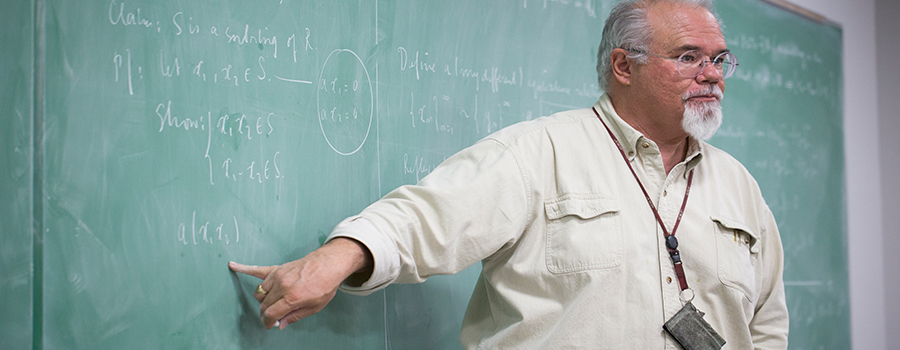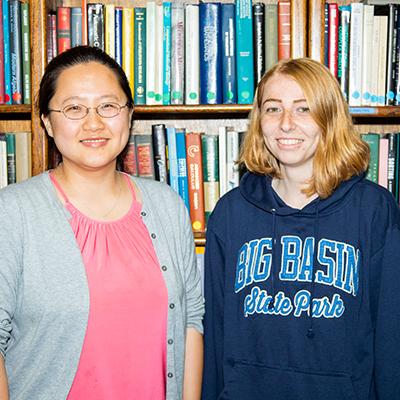Academics

Program Requirements for the Master of Arts in Teaching Mathematics
Loyola Marymount University is dedicated to providing a unique and flexible opportunity for mathematics educators to deepen their knowledge of mathematical science and apply it to their pedagogy.
The standard MAT program, developed by the Seaver College of Science and Engineering Department of Mathematics in collaboration with the LMU School of Education, includes 5 mathematics courses and 5 education courses.

However, program requirements can flex based on individual learning goals and prior experience in education and mathematics. For example, one student may be required to take 6 mathematics courses instead of 5 while another is required to take only 3 or 4 education courses. Our custom approach allows for greater diversity of experience within each cohort.
Our program is designed by faculty experts to meet the needs of working teachers. As such, courses are scheduled in the following way:
- Academic year courses typically meet virtually or in-person one evening per week for approximately 3 hours.
- Summer courses typically meet virtually or in-person twice a week, for approximately 3 hours each day for 6 weeks.
- Several courses are offered in hybrid format (75% on line, 25% on campus).
Mathematics Courses
The following courses are included in the MAT required curriculum:
- Methods of Proofs for Teachers: This course introduces number theory proofs, analysis proofs with limits and functions, cardinality, geometry, logic and language, and set theory proofs. The importance of proof writing and explanation in mathematics are emphasized. Students are exposed to mathematical problem solving that extends the concepts of secondary mathematics.
- Discrete Mathematics and Probability for Teacher: This course covers topics including combinatorics, recursion, algorithms, graph theory and probability. Students will also explore how these are integrated in secondary math and explore how topics of discrete math can extend secondary math curriculum.
- Analysis for Teachers: This course surveys topics in calculus, measure theory, and analysis. Calculus concepts are explored from an advanced perspective so as to reveal connections between secondary-school level analysis, calculus, and more advanced collegiate mathematics.
- Algebra for Teachers: This course introduces topics in number theory and abstract algebra, including modular arithmetic, properties of number systems, group, ring and field theory, and applications of abstract algebra, such as cryptography. Students will apply this knowledge in the context of the Standards for Mathematical Practice.
- Geometry for Teachers: This course investigates geometry from 4 perspectives: Euclid's axioms and constructions, Cartesian coordinates and algebra, projective and perspective geometry, and rigid and similarity transformations. This approach reinforces essential skills required for teaching geometry courses in the secondary curriculum by making connections to proving geometric theorems, using precise definitions, showing the connections between geometry and algebra and complex numbers, perfecting how to visualize in 2 and 3 dimensions, and understanding congruence and similarity through transformations.
- Statistics/Modeling for Teachers: This course selects from topics in statistics and modeling, such as basic descriptive statistics, inference, regression analysis, and modeling relationships. The use of statistics in the media and in educational studies is also a focus. The class is aligned with state standards in 6-12 grade statistics and is aligned with national recommendation from the American Statistical Association on teacher preparation of statistics.
Education Courses
Participants completing the MAT program will take up to 5 education courses. Students have several options, depending on their goals:
- Credential: Those working toward a credential will work with an advisor in the School of Education to select courses from the Elementary & Secondary Education Department.
- Certificate: Students who already have a credential may select courses to apply towards a certificate (in areas such as leadership, technology, or Catholic education).
- Custom: Students who already have a Master of Arts in Education will be encouraged to work with an advisor to choose courses according to future educational goals and interests. Courses may include working with technology in the classroom, urban education, or administration.